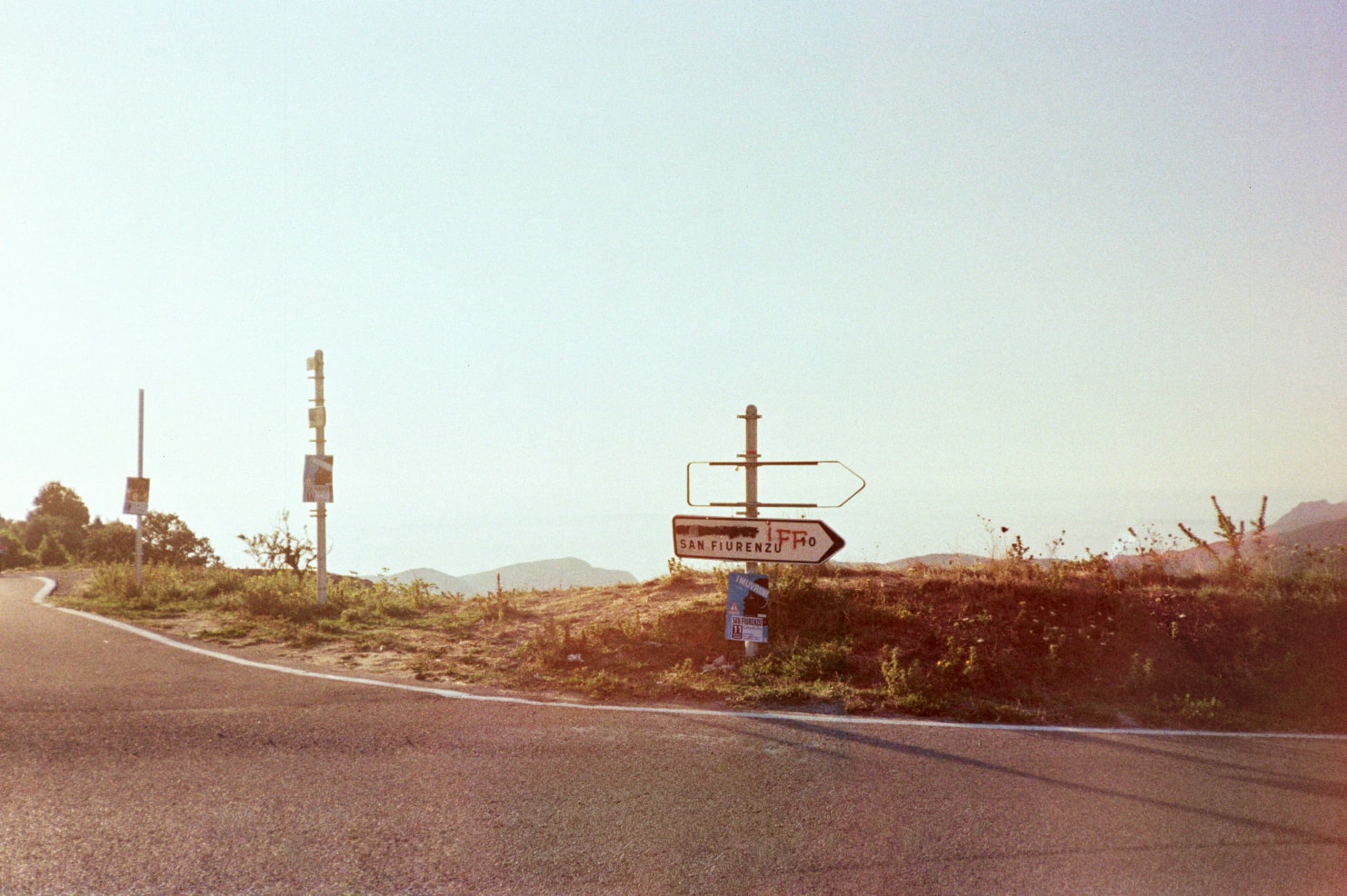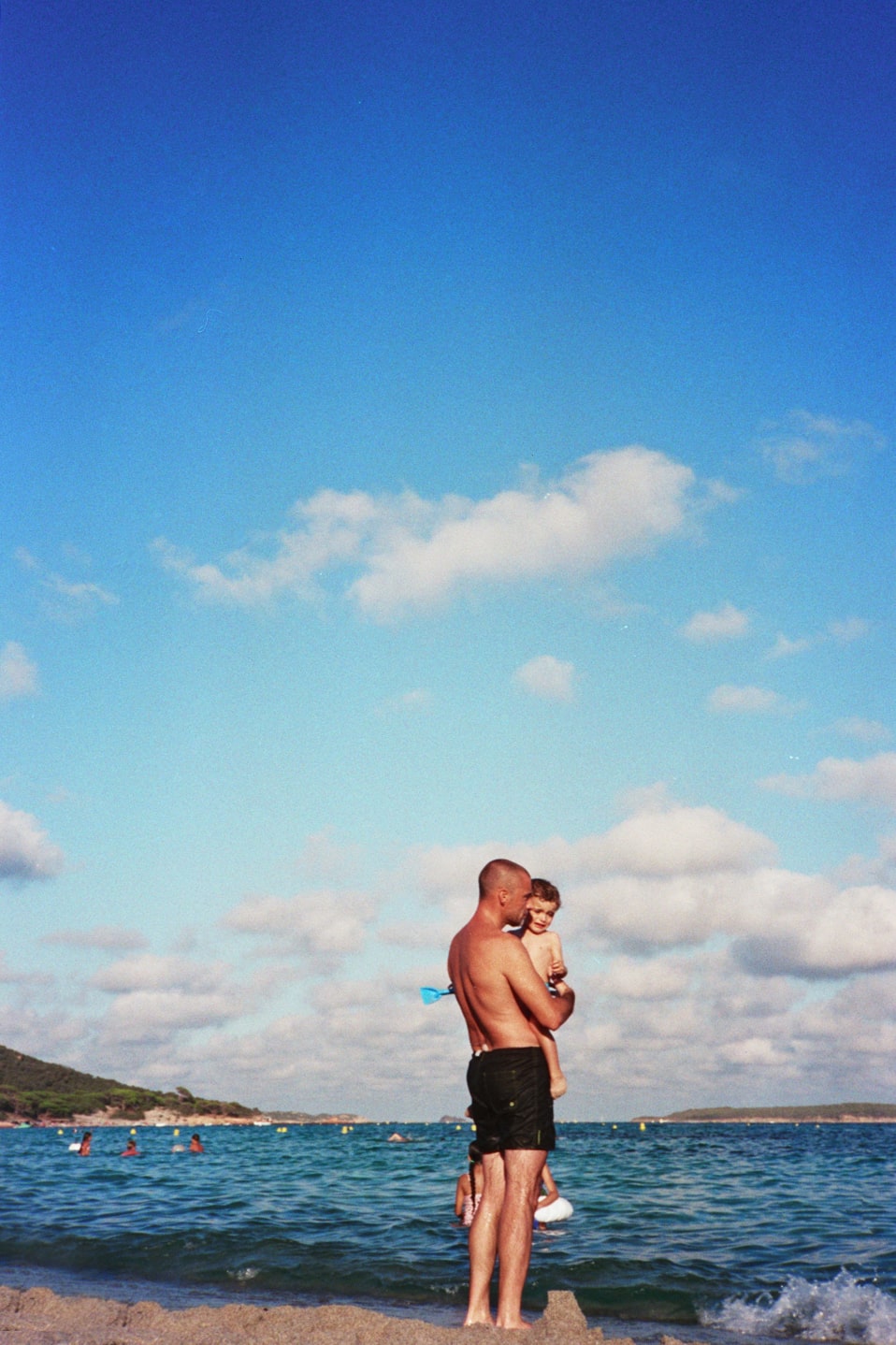To see when blindfolded
A wild heart beats in the middle of the Mediterranean sea. It’s a living island, lit by the sun and dominated by mountains. Both gentle and rough, Corsica, is a place of wonder: at the end of the road that runs through the steep-sided valley, there is a soft sand beach. The maquis covers this floating stone made of granite, transforming it into a thriving oasis.
This immense garden doesn’t follow any design, though. It’s a labyrinth that wants the guest to get lost. Roads never trace a clear path. Even the route that encircles the island is endlessly twisting and turning. Still, it’s the easiest way to go around and pass by the towns scattered along the coastline. The roads that climb up to the mounts lead somewhere else, way above the sea level and closer to the soul of this land. Villages overlook a stretch of green and blue, revealing a sense of presence and vastness. Like old towers build for protection from invaders, these communities stand firmly on these natural terraces and look into the time to come. There’s no need for landmarks in this search for points of reference, between the islanders and the environment there’s a relationship of mutual understanding and protection. Heritage is the compass to find a direction. Even road signs give more than driving information, they are cultural manifestos. They are meant to be multilingual too, but Italian and French names of places are often blotted out leaving the Corsican ones only. A people identity is reaffirmed through its native tongue. It’s the crossroad where the fear for the unfamiliar and hospitality meet. Outsiders should be in no doubt, they can slowly keep on going as they were blindfolded.
Traditionally, the moor’s head portrayed on the island flag had his eyes covered by a white bandana. In 1755, when ideals of independence gained a strong support among the Corsicans, the scarf was moved above the eyes as the metaphor of their journey towards self determination. This call for national freedom has yet to be answered but evolved into the intimate quest of the foreigners who travel here today. It became a promise for personal liberation, the chance to mirror themselves in a river, and see their doubts washed away by its restless water. Those who feel lost can find peace on the quiet shores of this conflicted island, bathed by the light of the sun that sinks in the horizon as it everyday does.
![]()
![]()
![]()
![]()
![]()
![]()
![]()
![]()
![]()
![]()
![]()
![]()
![]()
![]()
![]()
This immense garden doesn’t follow any design, though. It’s a labyrinth that wants the guest to get lost. Roads never trace a clear path. Even the route that encircles the island is endlessly twisting and turning. Still, it’s the easiest way to go around and pass by the towns scattered along the coastline. The roads that climb up to the mounts lead somewhere else, way above the sea level and closer to the soul of this land. Villages overlook a stretch of green and blue, revealing a sense of presence and vastness. Like old towers build for protection from invaders, these communities stand firmly on these natural terraces and look into the time to come. There’s no need for landmarks in this search for points of reference, between the islanders and the environment there’s a relationship of mutual understanding and protection. Heritage is the compass to find a direction. Even road signs give more than driving information, they are cultural manifestos. They are meant to be multilingual too, but Italian and French names of places are often blotted out leaving the Corsican ones only. A people identity is reaffirmed through its native tongue. It’s the crossroad where the fear for the unfamiliar and hospitality meet. Outsiders should be in no doubt, they can slowly keep on going as they were blindfolded.
Traditionally, the moor’s head portrayed on the island flag had his eyes covered by a white bandana. In 1755, when ideals of independence gained a strong support among the Corsicans, the scarf was moved above the eyes as the metaphor of their journey towards self determination. This call for national freedom has yet to be answered but evolved into the intimate quest of the foreigners who travel here today. It became a promise for personal liberation, the chance to mirror themselves in a river, and see their doubts washed away by its restless water. Those who feel lost can find peace on the quiet shores of this conflicted island, bathed by the light of the sun that sinks in the horizon as it everyday does.


